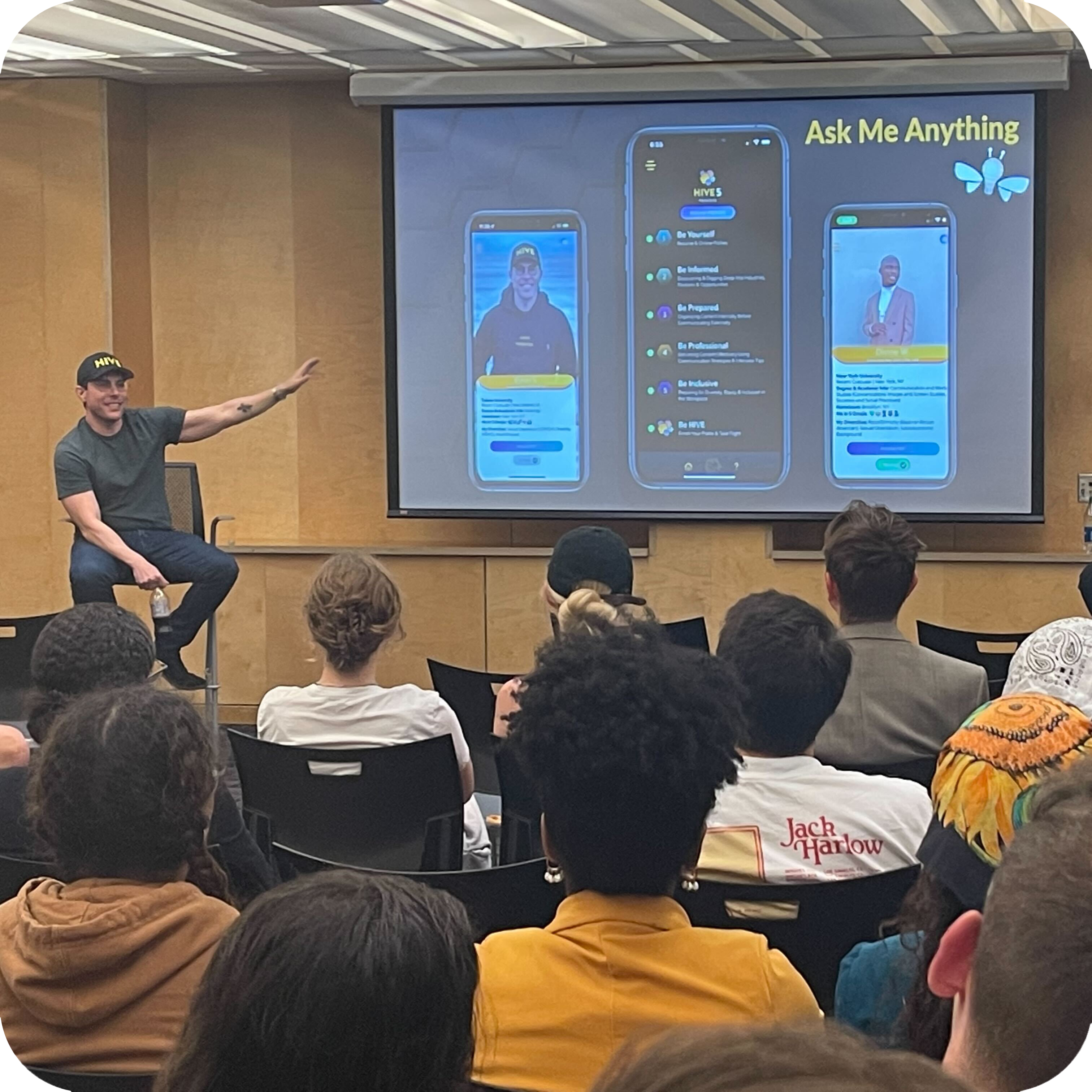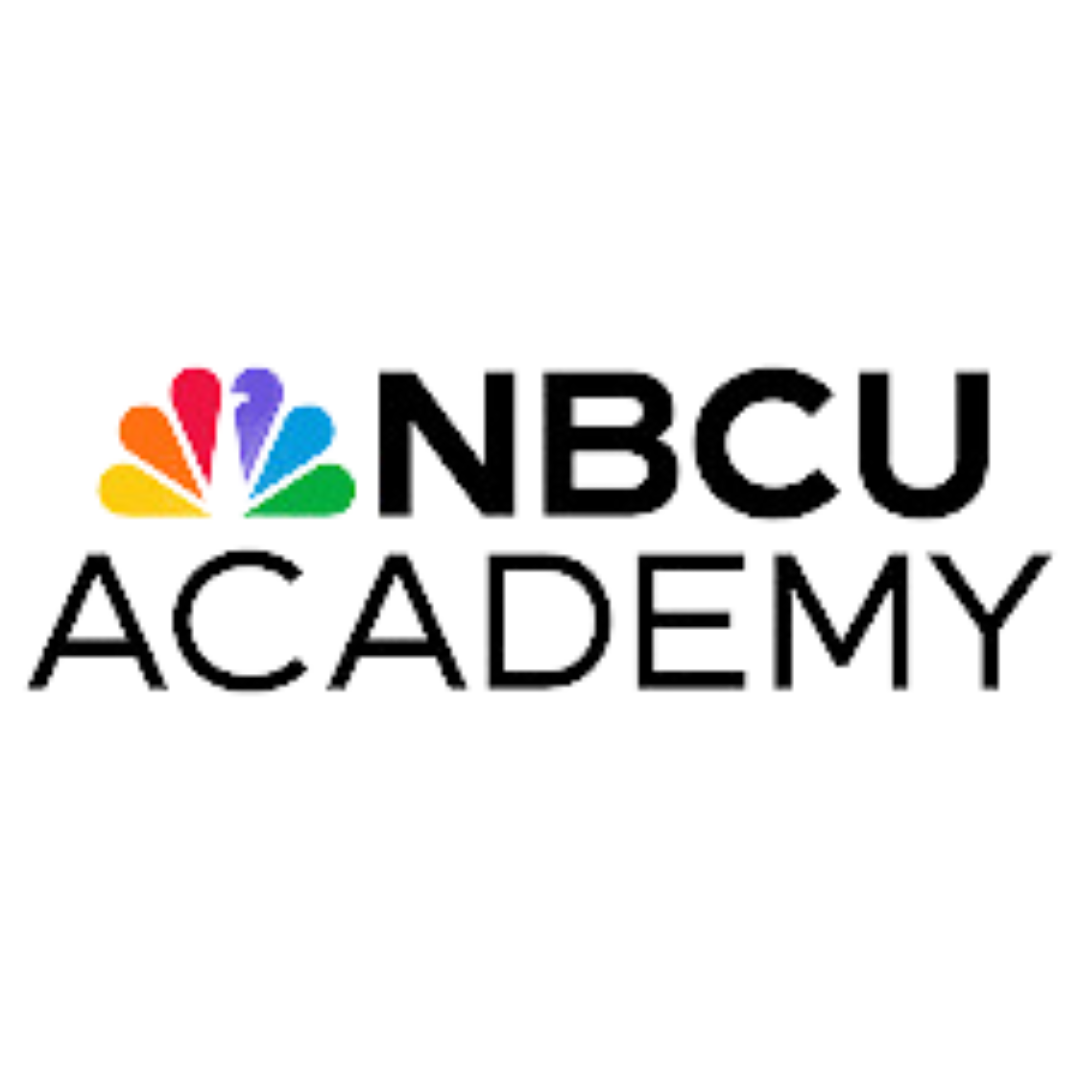Past Talks
Gain Meaningful Insights On

-
 Early Career Recruitment Insights
Early Career Recruitment Insights
Byron delivers impactful talks on merit-based hiring in the workplace.
-
 Gen Z Engagement Strategies
Gen Z Engagement Strategies
Learn how to recruit and engage with the next generation of talent effectively.
-
 Early Career Engagement and Recruiting Tips
Early Career Engagement and Recruiting Tips
Discover innovative approaches to early career recruitment and engagement.
-
 Tech, Entrepreneurship, & Startup Funding
Tech, Entrepreneurship, & Startup Funding
Discover innovative approaches to early career recruitment and engagement.



helloByron
-

Byron Slosar is a former flying trapeze instructor and sociology major. Despite never having an internship, he has coached over 10,000 students in their career journeys. He runs a tech company with two patents as a first-time CEO and founder, was in the closet until he was 26 years old, grew up Jewish in Louisiana (but went to Catholic school for most of his life), and is number 4 of 6 kids in his family.
-

He launched a tech company at age 42 to finally get his mom’s attention (kidding, mom!)… and his disjointed and unpredictable career path now empowers both employers and students to recognize the power of reimagined relevant experience.
-

Before founding Hive, Slosar worked with over 4,000 students across various educational institutions including Tulane University in New Orleans, LA, and the Abaarso School of Science & Technology in Hargeisa, Somaliland. He founded Hive to extend the reach of his resources and coaching, which were initially available only in a personalized format, by leveraging technology to serve hundreds and now thousands of additional schools and students.
Testimonials
“Thank you so much for joining us last week Byron Slosar, Gina Bruso, MBA, and hellohive! Our chapter had an amazing time connecting with you all and learning more about the recruitment process through your platform. Additionally, thank you for giving me the opportunity to be a student panelist at the "Getting in Sync with Gen Z" session. It was an amazing experience!”
"hellohive’s approach to recruiting up-and-coming talent is revolutionary. Byron opened our eyes to new ways to attract and retain new employees to the seafood industry."
Speech Topics
Better with Helper B, A Reimagined Guide to Careers
With a focus on being people first and not needing to always be in the driver’s seat, Slosar retrospectively connects key components of his career, that while were far from intentional decisions at the time, culminated in being a first-time dad and first-time founder and CEO at...
With a focus on being people first and not needing to always be in the driver’s seat, Slosar retrospectively connects key components of his career, that while were far from intentional decisions at the time, culminated in being a first-time dad and first-time founder and CEO at the same time much later in life. In his interactive presentation, he makes the career journey much less intimidating and much more inviting.
Through the discussion, he focuses on on helping students and colleges understand what traditional blockers have existed in the career process (like majors, linear career trajectories, and recruitment timelines) and how to break them down by thinking about the What (Job Function), Where (Industry & Location), How (Skills), & Why. Through the discussion, he focuses on on helping students and colleges understand what traditional blockers have existed in the career process (like majors, linear career trajectories, and recruitment timelines) and how to break them down by thinking about the What (Job Function), Where (Industry & Location), How (Skills), & Why.
Build, Don’t Buy Talent (Building For Gen Z, Being People First - Early Engagement)
Meaningful engagement and transparent communication are more important than ever when recruiting Gen Z. Three simple shifts in your early recruitment perspectives will help your organization create systemic change, which starts with prioritizing the next generation of talent. I...
Meaningful engagement and transparent communication are more important than ever when recruiting Gen Z. Three simple shifts in your early recruitment perspectives will help your organization create systemic change, which starts with prioritizing the next generation of talent.
If your industry recruits early and you can’t shift the timeline, invest in ways to meet candidates where they are, make it easier for them to engage with you, and, most importantly, make that engagement less intimidating.
When posting a job, make it easy for the candidate to understand exactly what you’re looking for. Lead with the job function, not the industry. Title your position succinctly and make it easy to understand. Use the position description to include short-form content. Within minutes, candidates should know exactly:
What am I going to be doing? (function)
Where am I going to do this? (industry)
Why do I want to do this? (culture and values)
Can I afford to do this? (compensation).
When considering potential candidates for an entry-level role, look way beyond a GPA, for the aforementioned reason and because GPAs and grading processes vary significantly not just between different schools, but between every single professor and class that a student takes.

About hellohive
Hellohive is a next-gen resume and recruitment technology company, dedicated to creating pathways for early-career talent. Our proprietary resume technology empowers candidates to showcase their skills and experiences authentically. hellohive is reshaping the future of talent acquisition for companies across industries.






















